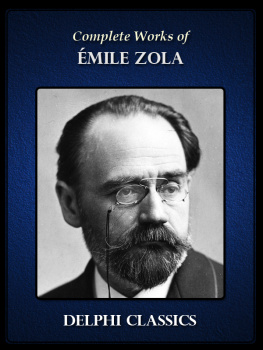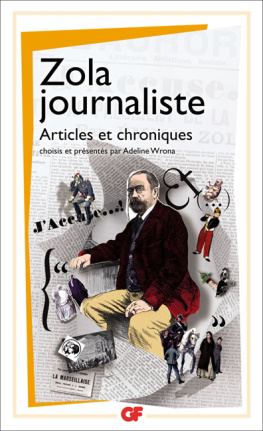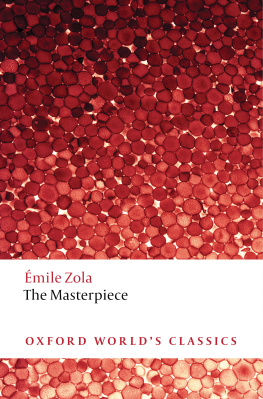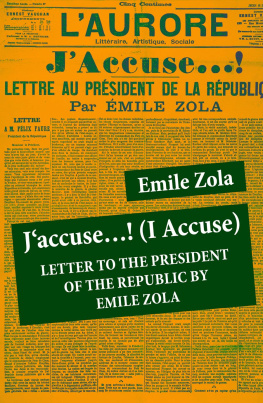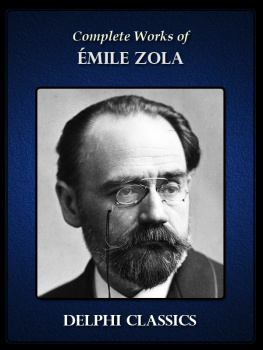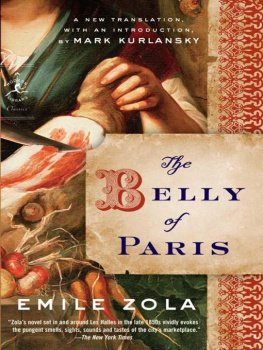Émile Zola - Germinal
Here you can read online Émile Zola - Germinal full text of the book (entire story) in english for free. Download pdf and epub, get meaning, cover and reviews about this ebook. year: 2004, publisher: Penguin Books, genre: Art. Description of the work, (preface) as well as reviews are available. Best literature library LitArk.com created for fans of good reading and offers a wide selection of genres:
Romance novel
Science fiction
Adventure
Detective
Science
History
Home and family
Prose
Art
Politics
Computer
Non-fiction
Religion
Business
Children
Humor
Choose a favorite category and find really read worthwhile books. Enjoy immersion in the world of imagination, feel the emotions of the characters or learn something new for yourself, make an fascinating discovery.
- Book:Germinal
- Author:
- Publisher:Penguin Books
- Genre:
- Year:2004
- Rating:4 / 5
- Favourites:Add to favourites
- Your mark:
- 80
- 1
- 2
- 3
- 4
- 5
Germinal: summary, description and annotation
We offer to read an annotation, description, summary or preface (depends on what the author of the book "Germinal" wrote himself). If you haven't found the necessary information about the book — write in the comments, we will try to find it.
Germinal — read online for free the complete book (whole text) full work
Below is the text of the book, divided by pages. System saving the place of the last page read, allows you to conveniently read the book "Germinal" online for free, without having to search again every time where you left off. Put a bookmark, and you can go to the page where you finished reading at any time.
Font size:
Interval:
Bookmark:

GERMINAL
MILE ZOLA, born in Paris in 1840, was brought up in Aix-en-Provence in an atmosphere of struggling poverty after the death of his father in 1847. He was educated at the Collge Bourbon at Aix and then at the Lyce Saint-Louis in Paris. After failing the baccalaurat twice and then taking menial clerical employment, he joined the newly founded publishing house Hachette in 1862 and quickly rose to become head of publicity. Having published his first novel in 1865 he left Hachette the following year to become a full-time journalist and writer. Thrse Raquin appeared in 1867 and caused a scandal, to which he responded with his famous Preface to the novels second edition in 1868 in which he laid claim to being a Naturalist. That same year he began work on a series of novels intended to trace scientifically the effects of heredity and environment in one family: Les Rougon-Macquart. This great cycle eventually contained twenty novels, which appeared between 1871 and 1893. In 1877 the seventh of these, LAssommoir (The Drinking Den), a study of alcoholism in working-class Paris, brought him abiding wealth and fame. On completion of the Rougon-Macquart series he began a new cycle of novels, Les Trois Villes: Lourdes, Rome, Paris (189468), a violent attack on the Church of Rome, which led to another cycle, Les Quatre vangiles. While his later writing was less successful, he remained a celebrated figure on account of the Dreyfus case, in which his powerful interventions played an important part in redressing a heinous miscarriage of justice. His marriage in 1870 had remained childless, but his happy, public relationship in later life with Jeanne Rozerot, initially one of his domestic servants, brought him a son and a daughter. He died in mysterious circumstances in 1902, the victim of an accident or murder.
ROGER PEARSON is Professor of French at the University of Oxford and Fellow and Tutor in French at The Queens College, Oxford. He is the author of standard critical works on Voltaire, Stendhal and Mallarm. He has translated and edited Voltaire, Candide and Other Stories (1990), Zola, La Bte humaine (1996) and Maupassant, A Life (1999). He has also revised and edited Thomas Waltons translation of Zola, The Masterpiece (1993).
MILE ZOLA
Translated with an Introduction and Notes
by ROGER PEARSON
PENGUIN BOOKS
PENGUIN BOOKS
Published by the Penguin Group
Penguin Books Ltd, Strand, London WC2R ORL , England
Penguin Putnam Inc., Hudson Street, New York, New York 10014 , USA
Penguin Books Australia Ltd, Camberwell Road, Camberwell, Victoria 3124 , Australia
Penguin Books Canada Ltd, Alcorn Avenue, Toronto, Ontario, Canada M4V 3B2
Penguin Books India (P) Ltd, Community Centre, Panchsheel Park, New Delhi 110 017 , India
Penguin Books (NZ) Ltd, Cnr Rosedale and Airborne Roads, Albany, Auckland, New Zealand
Penguin Books (South Africa) (Pty) Ltd, Sturdee Avenue, Rosebank 2196 , South Africa
Penguin Books Ltd, Registered Offices: Strand, London WC2R ORL , England
www.penguin.com
First published 1885
This translation published 2004
Translation and editorial matter copyright Roger Pearson, 2004
All rights reserved
The moral right of the translator has been asserted
Except in the United States of America, this book is sold subject to the condition that it shall not, by way of trade or otherwise, be lent, resold, hired out, or otherwise circulated without the publishers prior consent in any form of binding or cover other than that in which it is published and without a similar condition including this condition being imposed on the subsequent purchaser
9780141908373
1840 2 April mile Zola born in Paris, the son of an Italian engineer, Francesco Zola, and of Franoise-Emilie Aubert.
1843 The family moves to Aix-en-Provence, which will become the town of Plassans in the Rougon-Macquart novels.
1847 Francesco Zola dies, leaving the family nearly destitute.
1848 The rule of King Louis-Philippe (the July Monarchy, which came to power in 1830) is overthrown and the Second Republic declared. Zola starts school. Karl Marx publishes Manifesto of the Communist Party.
1851 The Republic is dissolved after the coup dtat of Louis-Napoleon Bonaparte who in the following year proclaims himself emperor as Napoleon III. Start of the Second Empire, the period that will provide the background for Zolas novels in the Rougon-Macquart cycle.
1852 Zola is enrolled at the Collge Bourbon, in Aix, where he starts a close friendship with the painter Paul Czanne.
1858 The family moves back to Paris and Zola is sent to the Lyce Saint-Louis. His school career is undistinguished and he twice fails the baccalaurat.
1860 The start of a period of hardship as Zola tries to scrape a living by various kinds of work, while engaging in his first serious literary endeavours, mainly as a poet. These years saw the height of the rebuilding programme undertaken by Baron Haussmann, Prefect of Paris from 1853 to 1869, which is reflected in several of Zolas novels.
1862 Zola joins the publisher Hachette, and in a few months becomes the firms head of publicity.
1863 Makes his dbut as a journalist.
1864 Zolas first literary work, the collection of short stories, Contes Ninon, appears. Founding of the First International.
1865 Publishes his first novel, La Confession de Claude. Meets his future wife, Gabrielle-Alexandrine Meley; they marry in 1870.
1866 Leaves Hachette. From now on, he lives by his writing.
1867 Publication of Thrse Raquin, the story of how a working-class woman and her lover kill her husband, but are afterwards consumed by guilt. In the Preface to the second edition (1868), Zola declares that he belongs to the literary school of Naturalism.
18689 Zola develops the outline of his great novel-cycle, Les Rougon-Macquart, which he subtitles The Natural and Social History of a Family under the Second Empire. It is founded on the latest theories of heredity. He signs a contract for the work with the publisher Lacroix.
1870 The outbreak of the Franco-Prussian War leads in September to the fall of the Second Empire. Napoleon III and Empress Eugnie go into exile in England and the Third Republic is declared. Paris is besieged by Prussian forces. La Fortune des Rougon starts to appear in serial form.
1871 Publication in book form of La Fortune des Rougon, the first novel in the Rougon-Macquart cycle. After the armistice with Prussia, a popular uprising in March threatens the overthrow of the government of Adolphe Thiers, which flees to Versailles. The radical Paris Commune takes power until its bloody repression by Thiers in May; the events would have great importance for the Socialist Left. Zola was shocked both by the anarchy of the Commune and by the savagery with which it was repressed. He begins to think of writing a novel about radical politics, which would later become Germinal.
1872 Publication of La Cure, the second of the Rougon-Macquart novels. Part of it had appeared in serialized form (SeptemberNovember 1871), but publication had been suspended by the censorship authorities.
1873 Publication of Le Ventre de Paris, the third of the cycle, set in and around the market of Les Halles. Mikhail Bakunin publishes Statehood and Anarchy
Next pageFont size:
Interval:
Bookmark:
Similar books «Germinal»
Look at similar books to Germinal. We have selected literature similar in name and meaning in the hope of providing readers with more options to find new, interesting, not yet read works.
Discussion, reviews of the book Germinal and just readers' own opinions. Leave your comments, write what you think about the work, its meaning or the main characters. Specify what exactly you liked and what you didn't like, and why you think so.


